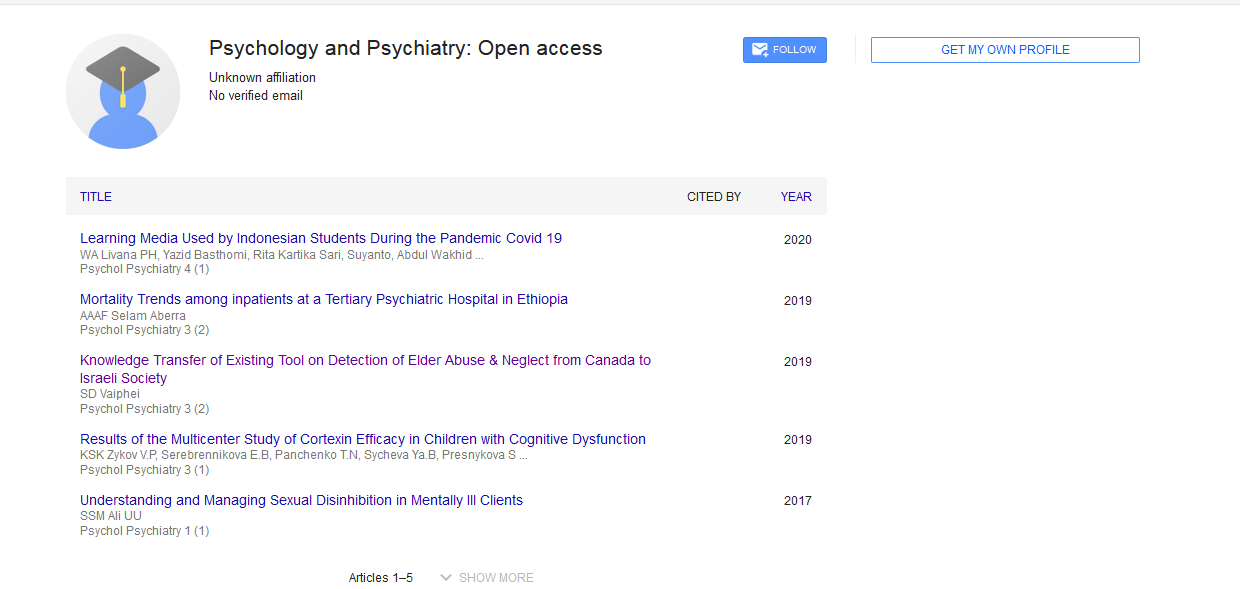Solitary Confinement in the Occupation Prisons and its Long-Term Psychological Effects on Prisoners
*Corresponding Author: Hatem Yousef Abu Zaydah, Department of Psychology and Psychiatry, An-Najah National University, An-Najah, Palestine, Email: hatemabuzaydeh@gmail.comReceived Date: Apr 17, 2023 / Published Date: Jun 16, 2023
Citation: Zaydah HYA (2023) Solitary Confinement in the Occupation Prisons and its Long-Term Psychological Effects on Prisoners. Psychol Psychiatry. 7: 146.DOI: 10.4172/ppo.1000146
Copyright: © 2023 Zaydah HYA. This is an open-access article distributed under the terms of the Creative Commons Attribution License, which permits unrestricted use, distribution, and reproduction in any medium, provided the original author and source are credited.
Abstract
The study aims to identify the long-term psychological effects of solitary confinement on the released prisoners who had experienced it for long years. The study examines the case of a released prisoner who had spent eighteen consecutive years in solitary confinement and exhibited severe psychological disorders after his liberation. To evaluate the prisoner’s condition, several tools were used for primary evaluation including semi-structured interview, the Psychological and Social Adjustment Scale, the Brief Psychiatric Rating Scale (BPRSP), and the Beck Depression Inventory (BDI-II). In addition, the American psychiatric association’s diagnostic and statistical manual of mental disorders issued was used to assist in the evaluation process. the results show that the released prisoner suffers from schizophrenia and severe psychotic disorder, with severe depression and absence of psychological harmony. The patient is on medication for schizophrenia and needs continuous medical follow-up. The main direct or indirect cause of his condition is the years he spent in prison, especially the eighteen years he spent in solitary confinement. The study recommends conducting additional studies on prisoners who have spent years in solitary confinement. It also recommends preparing a comprehensive file on solitary confinement in the occupation’s prisons to identify its grave psychological outcomes and communicating this issue to relevant international humanitarian and rights organizations to pressure the occupation to halt this policy and abide by the humanitarian standards stated in the international human rights charters.

 Spanish
Spanish  Chinese
Chinese  Russian
Russian  German
German  French
French  Japanese
Japanese  Portuguese
Portuguese  Hindi
Hindi 